
(Photo by Amairani Hernandez.)
Earlier this month, the Trump administration ramped up immigration enforcement operations, triggering widespread fear in Latino communities and raising concerns about the toll on their mental health.
As reports of ongoing immigration raids in Los Angeles continue to surface, the operations appear to be concentrated in predominantly Latino neighborhoods. So far, raids have been reported in Downey, Montebello, South Central, Huntington Park, El Monte, Pico Rivera, Whittier, Hollywood and several other areas.
It is no surprise that Latinos already face high rates of mental health conditions such as anxiety, depression and post-traumatic stress disorder. According to the Substance Abuse and Mental Health Services Administration, just 36.1% of Latino adults with a mental illness received related services in 2021, compared to 52.4% of white adults. The number of Latinos in need of mental health support is expected to reach an all-time high, despite the significant barriers many already face in accessing these services.
According to the Center for Migration Studies, 5.8 million U.S. households are home to at least one person without legal immigration status. Of those households, 4.7 million are composed of both undocumented residents and those with citizenship or other legal status.
CALÓ News spoke with Dr. Zaid Fadul, Clinical Director at Better U, a national platform for trauma therapy, on why mental health awareness in the Latino community is more important than ever.
Dr. Fadul said that due to the current change in administrations, there's been an extremely aggressive focus on immigration, which has been creating a lot of anxiety, fear and economic uncertainty within the undocumented community. “Latinos are disproportionately affected because you have a language barrier, a cultural barrier and you're trying to come here and then you're being ostracized and there's raids going on. There's a lot of pressure on this community right now,” he said.

The National Guard at a Los Angeles protest against immigration enforcement. (Photo by Amairani Hernandez/CALÓ News )
As widely reported in the news and on social media, many families have been separated, with mothers, fathers, and children detained by immigration authorities. According to Dr. Fadul, this only adds to the psychological distress experienced by affected communities. “I always like to think of family as a different word for love and tribe and when you split your family up, it leads to a tremendous amount of anxiety and insecurity,” he said. “It's one thing for us to personally endure hardship, but when you see a relative enduring that, and you can't do anything to help them, it's a form of extreme psychological distress. Family is everything for a lot of us,” he said.
Dr. Fadul also noted that children of undocumented families are also experiencing more mental health challenges due to the ongoing immigration crackdowns. Not only do they deal with cultural issues but there's also a reality shock when they become visibly aware of their parents status and what that means for their loved ones.“They start to gain some awareness and it gives them a sense of pause. Their world starts to shake under their feet,” he said.
He explained that with the recent events, this can be extremely anxiety inducing for the children as they start to overthink and start to have questions about their whole life. “My heart goes out to a lot of the children in this community. It must feel very much like they're under attack and under pressure,” he shared.
Many of these first generation children, especially the oldest sibling, usually take on adult responsibilities from a young age. Those responsibilities are caring for younger siblings when a parent is detained or deported. “This role reversal can lead to additional stress and pressure, affecting the child’s development and mental health,” according to Jacqueline Garcia, a bilingual licensed therapist.
Adriel Miramontes, a journalist in the city of Oxnard, said that he has spoken with many locals in his community who say they’re living in fear. “One man told me he didn’t go out on Father's Day at all. He was too afraid of being caught by ICE.” He also shared that other families pulled their kids out of school weeks before the year officially ended because they were terrified that immigration agents might show up and take their children.
Author and cultural advocate JeanPierre Ruda told CALÓ News that the raids in Southern California have created a profound paralysis within the Latino community, affecting every facet of daily life.
“Businesses are seeing customers disappear because people are too terrified to leave their homes, making impossible choices between earning a living and risking their safety,” Ruda said. “This isn't just about individual fear; it's about the deep emotional and mental exhaustion of an entire community living under constant threat. The most heartbreaking impact is on our children, who are witnessing their parents live in fear, sometimes withdrawing from school or activities out of caution. This kind of chronic stress and uncertainty, seeing your community targeted by racial profiling, is creating deep emotional scars and fundamentally eroding the sense of security and well-being for an entire generation.”
Alejandra Acuña, a private practice therapist, recently connected with someone at a local community healthcare organization who reported a significant drop in patient attendance. Many individuals are now avoiding medical appointments out of fear of being out in public amid ongoing immigration enforcement activity. “We're seeing people so scared that they're putting their health at risk,” she said.
Acuña also explained that some of her patients are experiencing symptoms of anxiety, though these don’t always present in obvious or traditional ways. In some cases, the symptoms manifest as sleep disturbances, stomach issues or even unconsciously holding their breath.
“What happens is your body goes into fight or flight,” she said. “When you’re scared, whether someone is directly threatening you or you’re feeling threatened by the news and seeing people who look like you being targeted, your body reacts. Your heart races, your palms sweat, even if you’re just at home. Your mind perceives the threat, and your body responds, because it’s all connected. There is no mind without the body, and no body without the mind.”
According to the Hispanic Research Center, 37% of Latino adults with lower-income and living with children reported frequent anxiety or depressive symptoms, and most do not receive mental health services.
Walter, a small business owner and son of immigrant workers, shared that he has witnessed firsthand how these harsh actions damage not only people’s lives but also humanity. "In Los Angeles, ICE agents, backed by private prisons, corrupt elites like Erik Trump, and corporations like Hertz and Marriott, are targeting Latino communities with fear and force by tearing apart families, exploiting immigrant labor and enriching themselves through a system that mirrors the darkest chapters of history.”
Dr. Zadul also emphasized the chilling effects caused by deportation fears. Many are being exploited at their workplaces, accepting lower wages, avoiding hospital visits and even children are too afraid to speak up at school. “You become vulnerable to everything and everyone when living in fear, and if you stay silent, people will take advantage,” he explained.
Amid immigration raids, Virginia Bulacio, author of “Luna Inmigrante,” shared how she’s been protecting her mental health and offered practical tips for others navigating similar challenges.
Writing has become a vital tool for protecting her mental health. Through it, she navigates the complexities of immigration, political issues and personal relationships, finding space for reflection, creative solutions and healing. “I simply feel free to share my feelings. Writing a poem, listening to a hopeful song, doing a little yoga or going for a walk are creative ways to connect with our souls. It's also a form of medicine and can help us with our mental health. And most importantly, they are accessible and always within our reach,” Bulacio shared.
For those looking for additional resources, The Relational Center, a nonprofit organization in Los Angeles, is also offering free therapy for those directly affected by ICE raids and protests, if interested, click here.

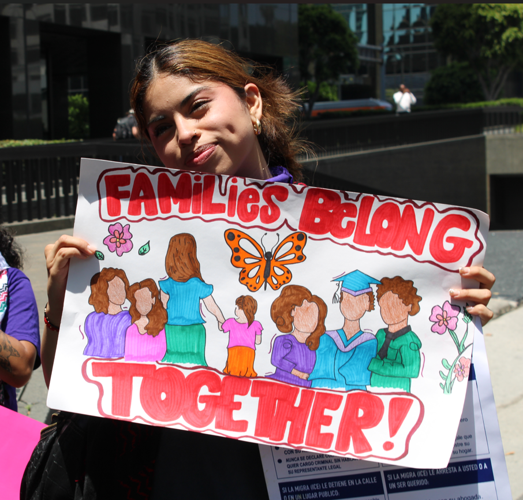
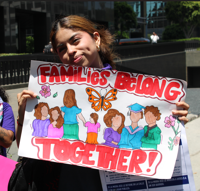
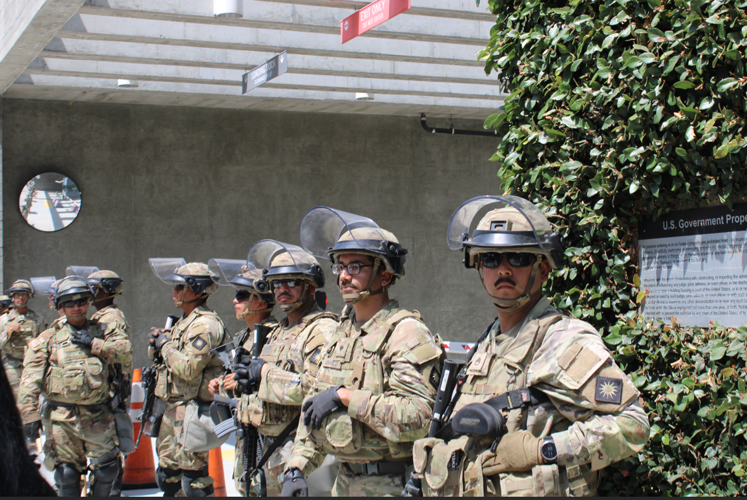
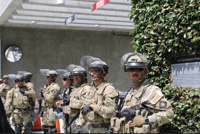

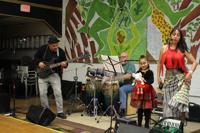





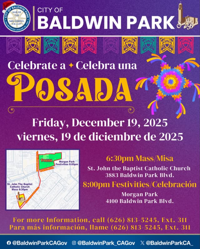
(0) comments
Welcome to the discussion.
Log In
Keep it Clean. Please avoid obscene, vulgar, lewd, racist or sexually-oriented language.
PLEASE TURN OFF YOUR CAPS LOCK.
Don't Threaten. Threats of harming another person will not be tolerated.
Be Truthful. Don't knowingly lie about anyone or anything.
Be Nice. No racism, sexism or any sort of -ism that is degrading to another person.
Be Proactive. Use the 'Report' link on each comment to let us know of abusive posts.
Share with Us. We'd love to hear eyewitness accounts, the history behind an article.